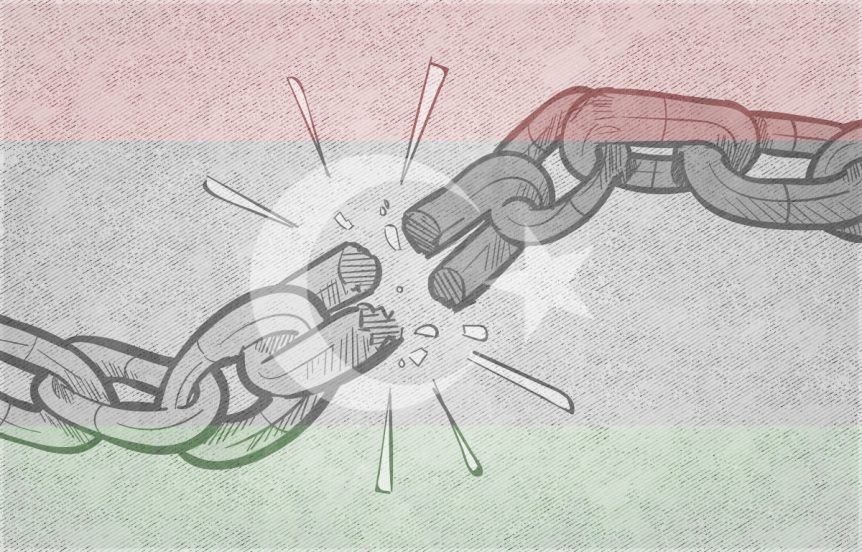The Cairo Institute for Human Rights Studies (CIHRS) welcomes the judgment issued by the expedited matters circuit of the South Benghazi Court on 18 July 2022. The ruling, which all parties were informed was binding on 18 August, suspended Decree 286/2019 issued by the Presidential Council of the Government of National Accord regulating the operation of the Civil Society Commission pending the adjudication of the merits of the case by the competent court. The judgment effectively bars the executive authority from intervening in the operation of civic associations and civil society organizations in Libya and guarantees their independence, pursuant to Article 15 of the 2011 Constitutional Declaration.
CIHRS asserts that the regulation of civic associations and civil society organizations falls within the jurisdiction of the legislature, thus ensuring the independence of civil society; the executive branch and its representatives have no authority to intervene.
On 16 November 2019, organizations with the Libya Platform and the CIHRS issued a detailed legal analysis of Presidential Council Decree 286 regulating the operation of civic associations, which concluded that the decree was issued by a body without the jurisdiction to do so. The Libya Platform and the CIHRS called on all Libyan NGOs to appeal the decree before the administrative courts insofar as it infringed the constitutional right to freely form associations, set forth in Article 15 of the Constitutional Declaration. It also contravenes Article 22 of the International Covenant on Civil and Political Rights, which, as a member state, Libya is obligated to respect.
CIHRS urges the Libyan executive authorities to comply with the court ruling issued by the court last month in a timely fashion. The executive must immediately cease to apply Decree 286 and refrain from engaging in repressive inherited practices that aim to empty the freedom of association of all meaning; it should issue no further decrees or statutes regulating the right of association, pursuant to Article 15 of the Libyan Constitutional Declaration. CIHRS calls on the Libyan legislative authorities to quickly adopt the civic associations law submitted by the Libya Platform, which concords with Libya’s obligations to guarantee the freedom of association.
Background to Decree 286
Statute 286/2019 circumscribed the operation of local associations and restricted the freedom of individuals to form civic associations by instituting a licensing regime requiring approval from the administrative body (the Civil Society Commission) instead of a system of notification. This was one of several measures that relied in full on the discretionary authority of the administration for the licensing and operation of civil society organizations. Article 38 of the decree requires associations to obtain prior approval from the commission to open a bank account, giving the commission the right to freeze an association’s account if it did not register as required.
With Article 23, the administrative body made it extremely complex for an association to amend its basic governing statute, giving the commission the right to accept or deny any change to the statute. Article 25 gives the commission the right to dissolve and annul an association for reasons deemed fit by the administration without resource to the judiciary. Under Articles 31–36, the commission has the right to assess, suspend, strike, or dissolve an association, absent a court ruling, if it exceeds its declared “aims” or violates statutory laws. Decrees to strike or dissolve an association may be appealed only after the decree is carried out, and grievances are heard by the same administrative body that issued the decree.
Articles 27, 28, 29, and 32 of the statute prohibit Libyan civic associations from receiving funding, including grants and donations, without prior approval of the commission. The commission may unilaterally strike offending associations from the registry without recourse to the judiciary.
Statute 286 requires international organizations operating in Libya to obtain prior approval to operate and impose complex procedures for obtaining legal personhood, as well as requiring special permission to open a bank account. Articles 45, 46, 49, 54, and 56 impose additional restrictions and barriers on the registration of foreign associations in Libya.
The commission has broad powers to deny a permit to foreign associations without judicial recourse or to delay an association’s registration on the pretext of consulting other ministries. Articles 46, 53, 56, 57, 61, and 65 allow the commission to directly interfere in the administration and privacy of associations, giving it the right to demand detailed information about associations’ activities, participants, and donors. Under the statute, foreign associations are required to obtain a permit from the commission two weeks in advance of organizing any event in Libya. Moreover, the statute imposes conditions related to the nationality of foreign associations’ representatives in Libya.
The statute permits the commission to appoint a financial custodian for an association without judicial approval. Articles 54 and 58 require prior approval from the commission to receive funding, open a bank account in Libya, or receive support. Article 66 prohibits international associations registered in Libya from operating outside the scope defined by the statute or from engaging in any activity deemed political or security-related by the commission. It also prohibits associations and organizations from communicating with political parties or entities. Article 67 allows the commission to unliterally revoke the registration of an association and its operating permit in Libya if the commission deems it to have contravened provisions of the statute or to have overstepped the limits of the activities it is permitted to pursue in Libya. The administrative body (the commission) has the authority to suspend licenses granted previously without a court order.
Share this Post

